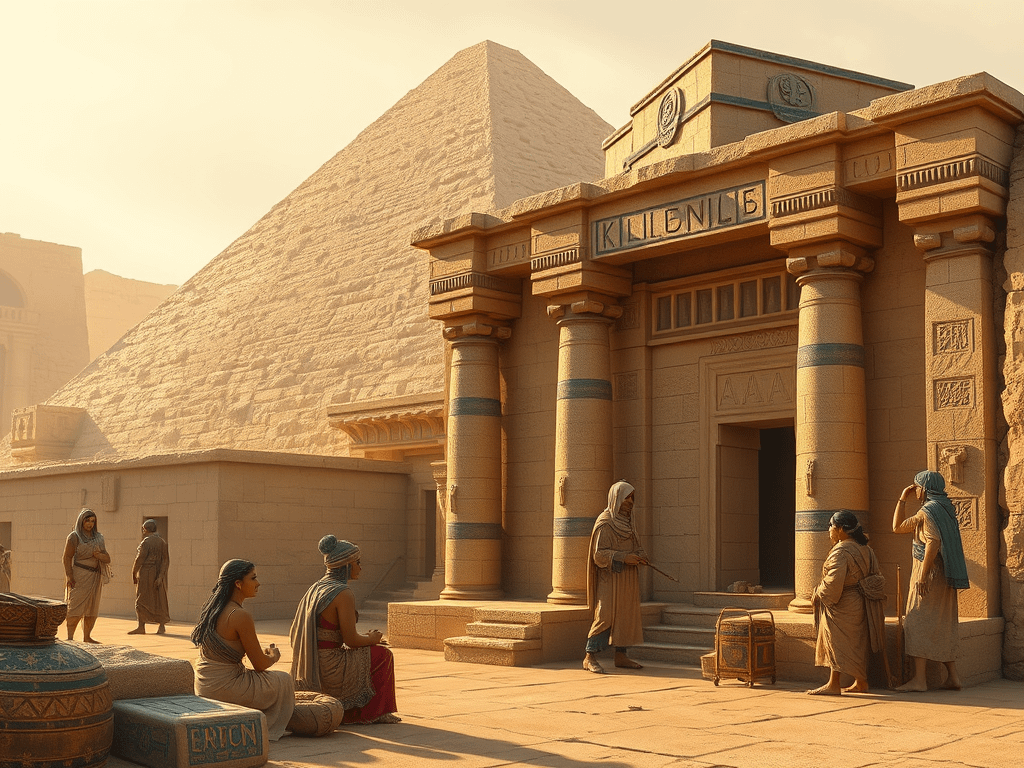Exodus Demystified: Understanding God’s Power in the Bible
Exodus Demystified: What does Exodus mean to humanity? This ancient narrative, deeply enshrined in religious text, continues to captivate the human imagination, offering a tapestry of freedom, struggle, and divine intervention.
The story of Exodus is more than a tale of antiquity; it resonates with the eternal human quest for liberty and faith. In this article, we aim to demystify the Exodus, exploring its historical contexts, theological implications, and its enduring influence on culture and society.
The Historical Context of Exodus
Understanding Exodus requires a dive into its historical backdrop, believed to have occurred during the late Bronze Age.
This period was marked by the flourishing of ancient civilizations in the Near East, including Egypt, Mesopotamia, and the Levant.
While the precise historical accuracy of the Exodus narrative is debated among scholars, its setting amidst these ancient civilizations provides crucial insights.
The narrative centers around the Hebrews’ escape from Egyptian bondage. In examining historical accounts, some historians draw parallels with known events of labor unrest or migrations in ancient Egypt.
However, the lack of concrete archaeological evidence for the Exodus specifically continues to fuel scholarly debates about its historical legitimacy.
| Aspect | Description | Examples/Comparisons |
|---|---|---|
| Period | Late Bronze Age | Egypt, Mesopotamia |
| Setting | Ancient Egypt | Levant migrations |
| Historical Evidence | Debated | Labor unrests |
| Scholarly Stance | Varied | Myth vs. History |

Theological Significance of Exodus
The theological dimensions of Exodus cannot be overstated. For the Jewish faith, Exodus is pivotal, symbolizing the covenant between God and the Israelites.
It is where the Ten Commandments were given, forming the bedrock of Jewish religious law and moral compass.
The story conveys themes of divine salvation and justice that transcend the boundaries of time and geography, influencing Christianity and Islam as well.
Christian theology often interprets the Exodus as a prefiguration of salvation, drawing parallels between Moses and Jesus as liberators of their people.
The Qur’an also recounts the story with significant mention of Moses, emphasizing monotheism and moral fortitude.
Exodus and Cultural Influence
Exodus has left an indelible mark on arts, literature, and pop culture. From classical compositions like Handel’s “Israel in Egypt” to modern film adaptations, the allure of the Exodus story lies in its universal themes of liberation and faith. Artists and writers have continuously reinterpreted its motifs, making Exodus a rich source of inspiration across various mediums.
“Indeed, God helps those who help themselves.” – This apothegm resonates with the spirit of Exodus.
Interpreting the Exodus Narrative
When interpreting Exodus, one must consider its literary elements. The narrative structures, character developments, and thematic depth offer a rich field for literary analysis.
The characterization of Moses exemplifies a journey from reluctance to leadership, mirroring psychological and spiritual themes related to human growth.
1- **Literary Analysis**: Understanding narrative structure and themes.
2- **Character Study**: Moses’ evolving role as a leader.
3- **Thematic Exploration**: Liberty, faith, and justice.
4- **Psycho-Spiritual Insights**: Relating to human development.
Exodus in Modern Social Discourse
In modern contexts, the Exodus narrative often emerges as powerful symbolism in discussions about freedom and oppression.
It has influenced various liberation movements worldwide, from the abolition of slavery to civil rights. The story’s invocation in speeches and writings underscores its message of human dignity and hope for salvation.
The Role of Archaeology in Understanding Exodus
Archaeology plays a critical role in testing the historicity of the Exodus account. Despite numerous excavations, conclusive evidence remains elusive.
Yet, the quest continues as archaeologists piece together aspects of ancient Egyptian life that might support the possibility of similar historical events.
Findings related to settlements and migrations in the ancient Near East provide contextual understanding.
Exodus in Comparative Religion Studies
Exodus provides a rich text for comparative religion studies, highlighting the interplay between cultural narratives and religious doctrines.
By examining how different religions interpret the Exodus narrative, scholars gain insights into shared values and diverse theological perspectives.
Conclusion: Exodus Demystified
The Exodus narrative remains a compelling piece of world heritage, rich with themes that resonate with the enduring human spirit.
Whether viewed through the lens of history, theology, culture, or literature, its significance and impact are profound, offering insights into the complexities of faith, freedom, and the unyielding quest for justice.
Understanding Exodus is not solely an academic endeavor but a reflection of shared human values and aspirations that continue to inspire generations.
FAQ – Common Questions
What is the main theme of the Exodus story?
The main theme is liberation and faith, depicting the struggle for freedom against oppression with divine intervention.
Is there any archaeological evidence supporting the Exodus?
While evidence is debated, some scholars draw parallels with known events in ancient Egypt, though no direct archaeological evidence confirms the biblical account.
How does Exodus influence modern culture?
The story continues to inspire in arts, literature, and music, symbolizing freedom and divine justice.
Is Exodus significant in religions other than Judaism?
Yes, Exodus is significant in Christianity and Islam, both of which regard Moses as a prophet and see the narrative as important moral and spiritual lessons.
How is Exodus used in contemporary social movements?
It is often cited in movements for social justice and liberation, echoing themes of freedom from oppression and human dignity.







